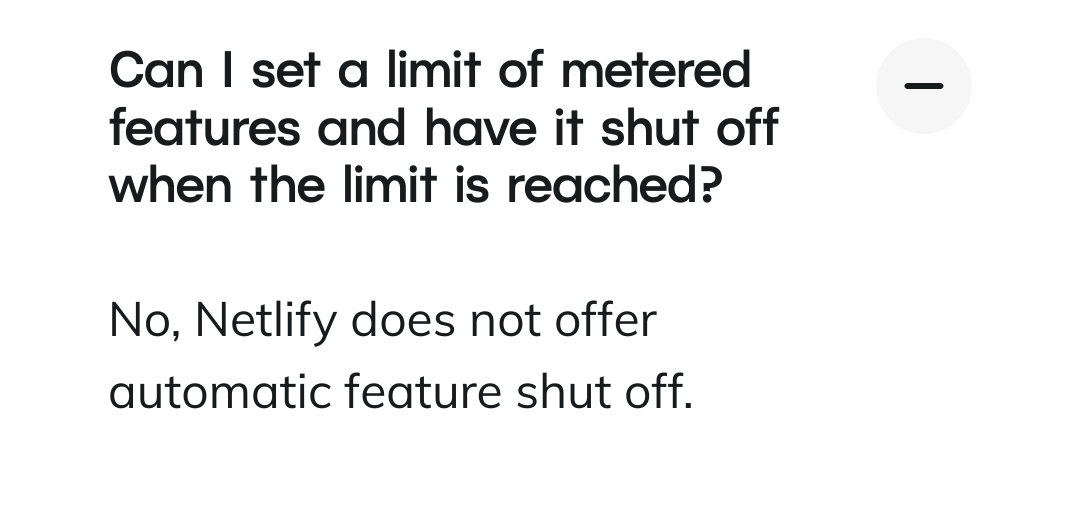"Netlify CEO here.
Our support team has reached out to the user from the thread to let them know they're not getting charged for this.
It's currently our policy to not shut down free sites during traffic spikes that doesn't match attack patterns, but instead forgiving any bills from legitimate mistakes after the fact.
Apologies that this didn't come through in the initial support reply."
This was posted 4 days ago in hackernews.
